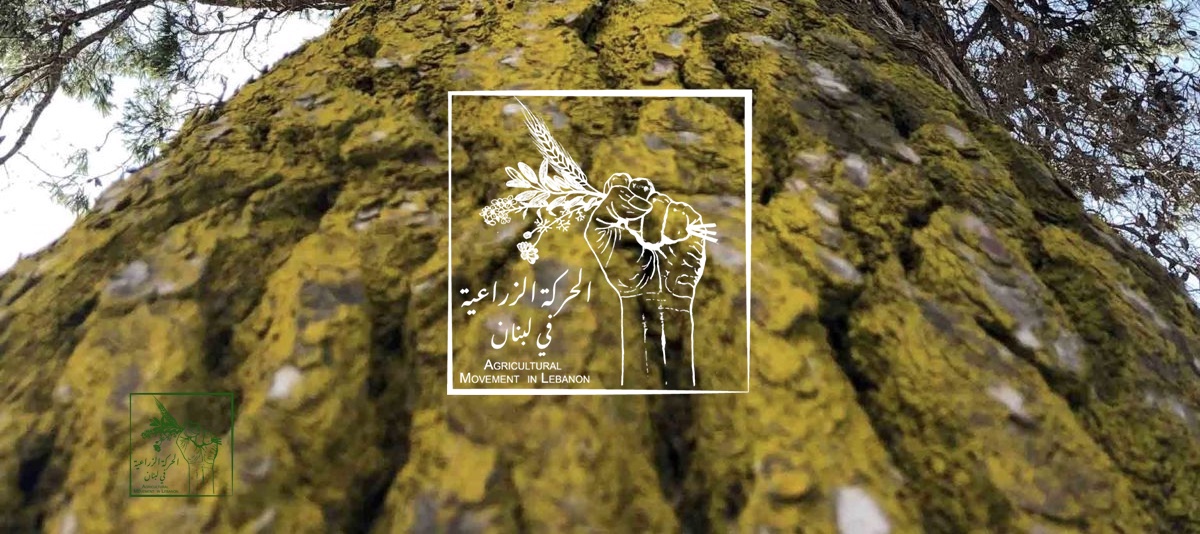Seeds Of Sour

Sour Food System:
In the wake of the recent war waged against Southern Lebanon villagers left their houses and their fields to safer places for more than a year till date. The war did not end yet, and the atrocities are enormous and catastrophic in many villages and on many levels and layers.
People lost their season’s crops and the next seasons’ preparations. They lost their livelihood: Mouneh (their food preserves), their livestock, their fields are dry, their trees and soils are burnt with white phosphorus and other elements not identified till now.
They are now living in makeshift shelters in public schools and / or at relatives’ houses. The displaced population is facing numerous challenges, including food insecurity, health issues, and economic instability. We aim to address these challenges. Amel Association in partnership with Agrimovement presents a comprehensive project aimed at empowering women through Cash for work, promoting ecological and regenerative agriculture, and fostering sustainable livelihoods in SOUR area.
They need to trust and believe that they are part of a society which will help them in their disaster. The displaced are now more than 100K!!
After many visits, and after working in Southern Lebanon since the beginning of the war, our team concluded the design of the following program.
The program is summarized in few words: build a dynamic food system which serves the displaced and its host communities, which could be extended if the war did not end soon, yet if it ends, this food system will serve the local host community public schools, and the displaced will go back to their houses with food reserves and living seedlings, saplings, and heirloom seeds. As well as knowledge and skills in ecological farming practices, food preservation and hygiene, and market insights.
So, to build this food system, we will start with women, the nucleus of our society. Women will be the pivot points in this system – as their historical role in agriculture and food systems. A participatory approach will be applied in all of the activities, starting with the design of the curriculum on ecological farming and other activities with the suppervesion of AUB Dr Rami zurayk
The activities in the program will start with creating two main lanes of production, the first is to reclame a public 10 dunm public land to be a permacultural side with the presence of green house that aim to produce heirloom seeds and sapling that serve the land and also serve the lost of the biodiversity input that was lost since the war in the south lebanon were the bombing of white phosphoris affect the agricultural and the wild land in the sounth during the war so the nursery will be part to reproduce the loss of the biodiversity so when the Idps farmers back to their lands they will have the chance to be part of the community engagement in the reconstruction and humanitarian and environmental part…produce heirloom seedlings and saplings, the second lane is food preservation or Mouneh (in Arabic) in this we will source from local farmers to enhance the economical source for them and link their crop o be in the chain of the reserve food processing more the food will be exposed to Amel shop and for a local fod market in the City where all the products will generate a income generation
Participants in the program will be assisted in building a heirloom plants nursery after participating in practical workshops on ecological farming, food processing and hygiene, leadership skills.
The program’s agricultural activities will happen in two plots, 10000 sqm in the planes of Sour near the shelters, so the IDPs in the shelters have safe access, the other one, 56000 sqm offered by Amel International Association is located between three villages housing IDPs in private homes.
This program aims to ensure Livelihood, Protection, and MHPSS activities to crisis affected women and girls across all represented social groups (Lebanese,, Palestinian women) and religious communities in Sour.
The program outlines a multi-faceted approach that addresses ecological farming, social intervention, cooperative work, regenerative agriculture, seedling production, biodiversity restoration, food processing, and circular economy practices. Will it be a model to replicate? We will be working on that!

Our focus is on crafting a curriculum with AUB that not only educates but also nurtures safe environments and embraces participatory approaches. This integrated curriculum will serve as a foundational grassroots layer, prioritizing the safety and well-being of women and the community as a whole.
By incorporating elements such as the “right to food,” “food sovereignty,” and empowerment, we aim to create a holistic educational experience. (NUTRITIONAL VALUE AWARNESS AND SAFE NUTRITIONS
We envision this initiative having a ripple effect, extending to a positive impact on various aspects of individuals’ lives, fostering resilience and empowerment throughout the community.
——————-
- Goal 1: No Poverty
- Social Protection Programs
- Livelihood Opportunities
- Goal 2: Zero Hunger
- Agricultural Productivity
- Food Security
- Nutrition Programs
- Sustainable Agriculture Practices
- Goal 3: Good Health and Well-being
:
- Mental Health Services
- Goal 4: Quality Education
- Lifelong Learning Opportunities
- Goal 5: Gender Equality
- Women’s Empowerment
- Women’s Health and Reproductive Rights
- Goal 6: Clean Water and Sanitation:
- Water Quality Management
- Water Conservation
- Goal 7: Affordable and Clean Energy
- Energy Efficiency Measures
- Clean Cooking Solutions
- Goal 8: Decent Work and Economic Growth
- Labor Rights and Protections
- Economic Diversification
- Sustainable Tourism
- Goal 9: Industry, Innovation, and Infrastructure
- Infrastructure Development
- Industrialization
- Goal 10: Reduced Inequality
- Income Inequality Reduction
- Social Inclusion
- Equality of Opportunity
- Empowerment of Marginalized Groups
- Goal 11: Sustainable Cities and Communities
:
- Urban Planning and Management
- Accessible and Inclusive Public Spaces
- Goal 12: Responsible Consumption and Production
- Sustainable Resource Use
- Waste Reduction and Recycling
- Sustainable Supply Chains
- Consumer Awareness and Education
- Goal 13: Climate Action
- Mitigation of Greenhouse Gas Emissions
- Adaptation to Climate Change Impacts
- Sustainable Land Use and Forest Conservation
- Goal 14: Life Below Water
- Pollution Prevention
- Goal 15: Life on Land
- Biodiversity Conservation
- Sustainable Land Management
- Forest Conservation and Restoration
- Combating Desertification
- Wildlife Protection
- Goal 16: Peace, Justice, and Strong Institutions
- Rule of Law
- Access to Justice
- Human Rights Protection
- Goal 17: Partnerships for the Goals
- Multi-stakeholder Collaboration
- Financing for Development





